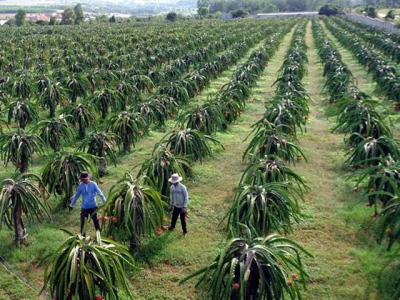Drastic changes needed in farming practices to access EU market

Maximise the opportunities that will come with the impending Vietnam - EU Free Trade Agreement (EVFTA), farmers and cooperatives are advised to implement changes to their farming methods in an effort to meet the higher standards of the EU market.
Nguyen Ngoc Nhan, head of Binh Hoa Phuoc Cooperative in Long An province, underscored the importance of applying organic farming practices, using organic fertilisers and biological products to create higher quality items with the aim of raising standards to penetrate the demanding market.
Thanks to the application of the farming practices, the cooperative’s rambutan products have been exported to a range of stringent markets such as France and the Netherlands, said Nhan, adding that both countries are willing to pay higher prices than several other markets when importing agricultural items that come up to the strict requirements in terms of design, quality, and pesticide residue so that food safety and hygiene standards can be ensured.
A local farmer who cultivates dragon fruits in Chau Thanh district, the Mekong Delta province of Long An, elaborated that since switching to the organic farming methods, both output and overall product quality has risen exponentially, coupled with products being sold at a higher price.
Tran Ngoc Bao Binh, the head of the raw material area of Chanh Thu Company in Ben Tre province, pointed out that the EU is a highly demanding market when it comes to applying stringent requirements regarding design, product quality, and antibiotic residues. Therefore, he recommended that local farmers should be striving to gradually eliminate chemicals, switch to organic farming, whilst also keeping a cultivation journal, as European firms carefully examine these technical requirements when choosing to import Vietnamese products.
According to Le Van Thiet, Deputy Director of the Plant Protection Department under the Ministry of Agriculture and Rural Development, Vietnamese fruits have been successfully exported to 60 countries and territories globally, with farmers applying VietGAP and Global GAP standards in line with farming procedures that see the use of chemicals prohibited.
With the rate of use of organic fertiliser in production being roughly 10%, Vietnam aims to increase the rate to 30% by 2030.
Có thể bạn quan tâm
 April agro-forestry-fisheries exports down 16.9 percent
April agro-forestry-fisheries exports down 16.9 percent Export revenue in April from agro-forestry-fisheries products was estimated at 2.9 billion USD, down 16.9 percent year-on-year
 Trade Ministry proposes lifting rice export quota
Trade Ministry proposes lifting rice export quota According to the ministry, the export of rice will only be conducted through international border gates by road, rail, waterway, sea and air.
 China remains largest consumer of Vietnamese farm produce
China remains largest consumer of Vietnamese farm produce The opening four months of the year saw China import US$2.8 billion worth of agro-forestry-aquatic products from Vietnam